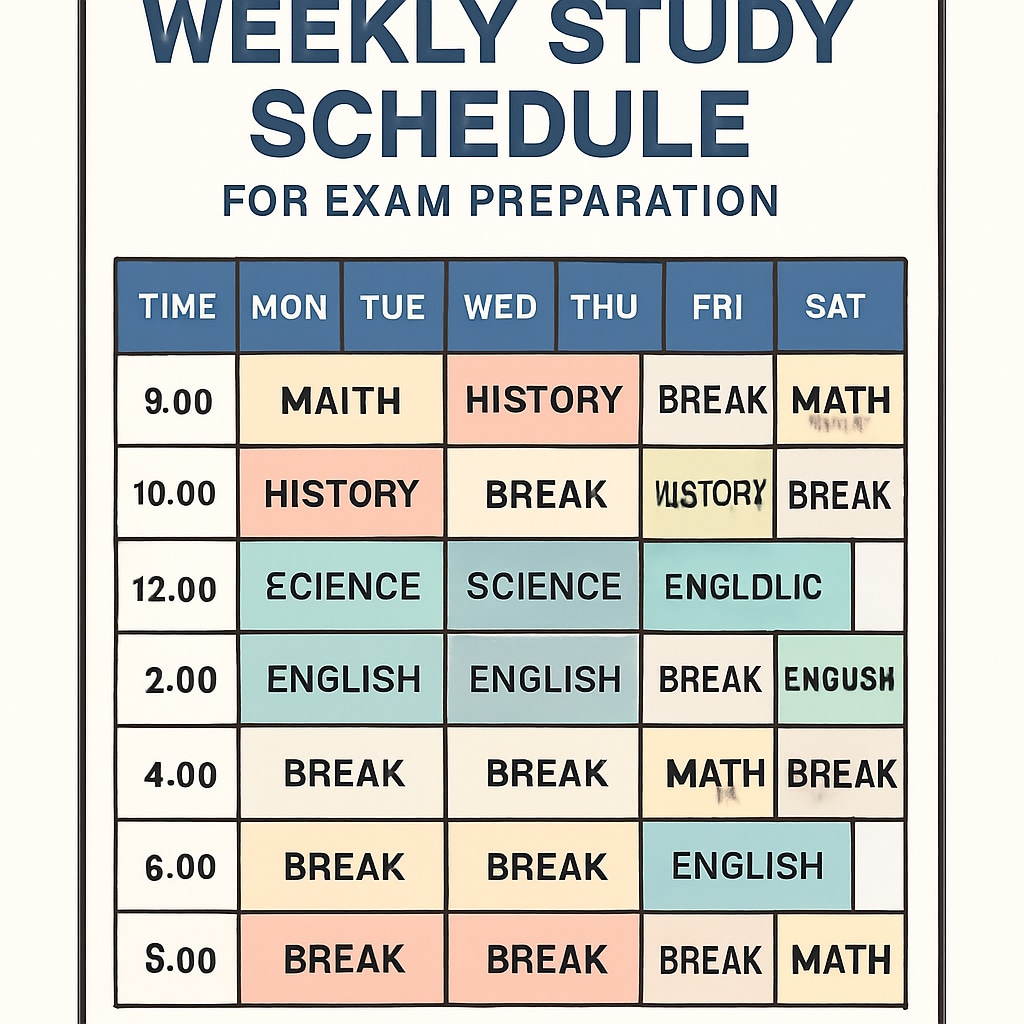When pursuing a challenging goal like a physics degree, setbacks such as failed exams can be a daunting obstacle. Effective preparation for multiple failed exams in a limited timeframe requires strategic time management and focused study techniques. This article outlines practical approaches to optimize your study efforts, reclaim confidence, and tackle academic adversity.
Understanding the Challenge of Failed Exams
Failing multiple exams can lead to stress and uncertainty, especially if your academic trajectory depends on passing them. To address this challenge, you need a clear understanding of your situation. Begin by identifying the core reasons for your previous struggles—such as time mismanagement, lack of understanding, or insufficient preparation. Once you’ve pinpointed these issues, you can tailor your recovery strategy accordingly.

Time Management: The Foundation of Recovery
Effective time management is essential when dealing with limited preparation periods. Start by creating a detailed schedule that allocates specific blocks of time to each subject. Prioritize exams based on their level of difficulty, importance to your degree, and your existing proficiency in the material. Use tools like calendars and timers to stay on track and ensure consistent progress.
Here are some key tips for managing your time effectively:
- Set realistic goals: Focus on achievable milestones for each session rather than attempting to cover everything at once.
- Use the Pomodoro technique: Study in focused intervals (e.g., 25 minutes of work followed by a 5-minute break) to maintain concentration.
- Avoid multitasking: Concentrate on one subject at a time to maximize learning efficiency.

Effective Study Strategies for Limited Time
Once your time management plan is in place, focus on using study methods that optimize your learning. Here are some proven techniques:
- Active recall: Test yourself regularly on key concepts to reinforce memory and understanding.
- Prioritize core topics: Identify high-yield areas that are most likely to appear on the exam and focus your efforts there.
- Form study groups: Collaborate with classmates to share insights and clarify difficult concepts.
- Leverage resources: Use available tools like past papers, online tutorials, and textbooks to enhance your understanding.
In addition, consider using techniques such as mind mapping to visualize and connect complex ideas, making it easier to retain information.
Maintaining Motivation and Managing Stress
Preparing for multiple failed exams can be emotionally exhausting. To stay motivated, remind yourself of your long-term goals and celebrate small victories along the way. Incorporate stress management techniques such as deep breathing, regular exercise, and sufficient sleep into your routine to maintain mental clarity.
Here are additional tips to keep your spirits high:
- Positive reinforcement: Reward yourself for completing study goals or mastering difficult topics.
- Take breaks: Schedule regular downtime to recharge and prevent burnout.
- Seek support: Reach out to friends, family, or academic advisors for encouragement and guidance.
Final Thoughts: Turn Challenges into Opportunities
Facing multiple failed exams is undoubtedly challenging, especially when pursuing a demanding field like physics. However, with a structured approach to time management, focused study strategies, and resilient motivation, you can turn academic setbacks into opportunities for growth. Remember, persistence and adaptability are key to overcoming obstacles and achieving success in your academic journey.
For more information on effective study techniques, visit Study Skills on Wikipedia or Education Resources on Britannica.
Readability guidance: Use concise paragraphs and lists to present information clearly. Incorporate transition words to ensure smooth flow between sections. Limit passive voice and long sentences to enhance readability.


